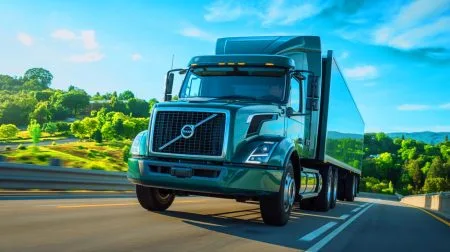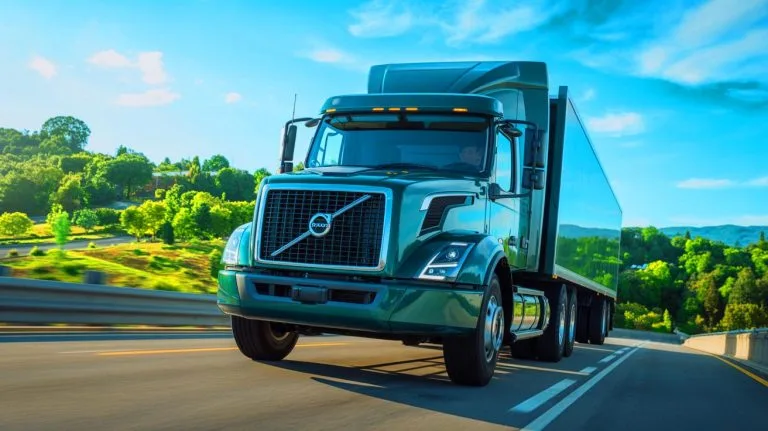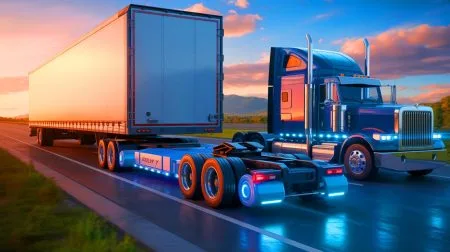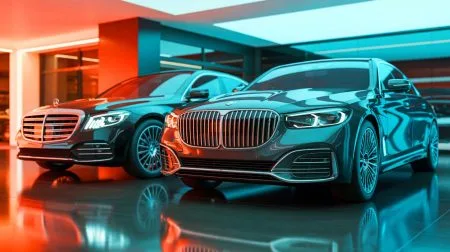| IN A NUTSHELL |
|
In a groundbreaking move, Volvo Trucks has unveiled a revolutionary stop/start engine technology for heavy-duty trucks. This innovation is set to significantly reduce fuel consumption and CO2 emissions. As a first of its kind in the heavy-duty segment, this new technology integrates seamlessly with Volvo’s established I-See and I-Roll systems. These systems are designed to optimize fuel efficiency by strategically shutting off the engine during downhill cruising. This advancement not only supports environmental sustainability but also enhances the operational efficiency of long-haul trucking, offering a glimpse into the future of sustainable transportation.
The Integration of Advanced Road Monitoring
Volvo’s latest technological integration goes beyond the conventional stop/start engine feature. By incorporating advanced monitoring of road topography and conditions, the system is designed to maximize fuel efficiency. The engine automatically restarts without driver input, ensuring a seamless transition. This is part of the new generation of I-See and I-Roll technologies, which activate at speeds above 37 mph. This innovation reflects Volvo’s commitment to sustainability, as echoed by Jan Hjelmgren, Head of Product Management at Volvo Trucks. He emphasized the company’s ongoing efforts to innovate and reduce environmental impact.
The technology’s ability to analyze and adapt to road conditions in real-time is a testament to its sophistication. It leverages detailed mapping and data analysis to optimize the truck’s performance, contributing to significant fuel savings. This not only benefits the environment by reducing emissions but also offers cost savings for truck operators, making it a win-win scenario.
“680 Horsepower in 4 Seconds”: Volvo ES90 Destroys Tesla With 435-Mile Range and Lightning Charging
Anticipating Uphill Challenges with I-See Technology
The I-See technology stands out by preparing the truck for upcoming uphill gradients. By anticipating these challenges, the system increases speed in advance, preventing unnecessary downshifts. This foresight allows for smoother climbs and conserves fuel by avoiding lower gears near the top of the hill. Moreover, the innovative Eco-Roll feature disengages the driveline, allowing the truck to roll optimally before re-engaging. This mechanism effectively saves energy and reduces the need for braking.
Additionally, I-See incorporates knowledge of the road’s end slopes, enabling the application of engine braking at precisely the right moment. This avoids abrupt braking and allows the truck to maintain momentum for future climbs. Such intelligent use of kinetic energy underlines the sophistication of Volvo’s systems, ensuring that the truck operates at peak efficiency without compromising safety or performance.
Why trucks remain essential for small businesses in the modern era
Enhancing Road Safety with Dynamic Steering
Beyond fuel efficiency, Volvo Trucks is also prioritizing road safety with its upgraded Dynamic Steering system. This system is engineered to detect and respond to front tire punctures, helping maintain the truck’s stability. By mitigating the side forces caused by sudden tire air pressure loss, the system assists drivers in keeping the vehicle on course. This innovation represents a significant advancement in trucking safety, reducing the risks associated with tire blowouts.
Volvo’s commitment to safety and efficiency is evident in these technological advancements. By addressing both operational efficiency and driver safety, the company is setting new standards in the heavy-duty truck industry. Customers looking to benefit from these innovations can order the new features on the Volvo FH and FH Aero models equipped with a 13-liter diesel engine, starting September 2025.
The Future of Trucking and Sustainability
Volvo Trucks’ latest innovations mark a significant stride toward sustainable transportation. By combining cutting-edge technology with practical applications, the company is leading the charge in reducing the carbon footprint of the trucking industry. These advancements align with global efforts to combat climate change, emphasizing the importance of sustainable practices in all sectors.
As these technologies continue to evolve, they hold the potential to transform the transport industry. The integration of intelligent systems that enhance fuel efficiency and safety could redefine how heavy-duty trucks operate. This raises an important question: as technology advances, how will the trucking industry adapt to balance innovation with traditional practices?
Did you like it? 4.3/5 (26)







How exactly does the engine “shut off” while driving? Isn’t that dangerous? 🤔
Wow, Volvo is really pushing the envelope with this one! 🚛💚